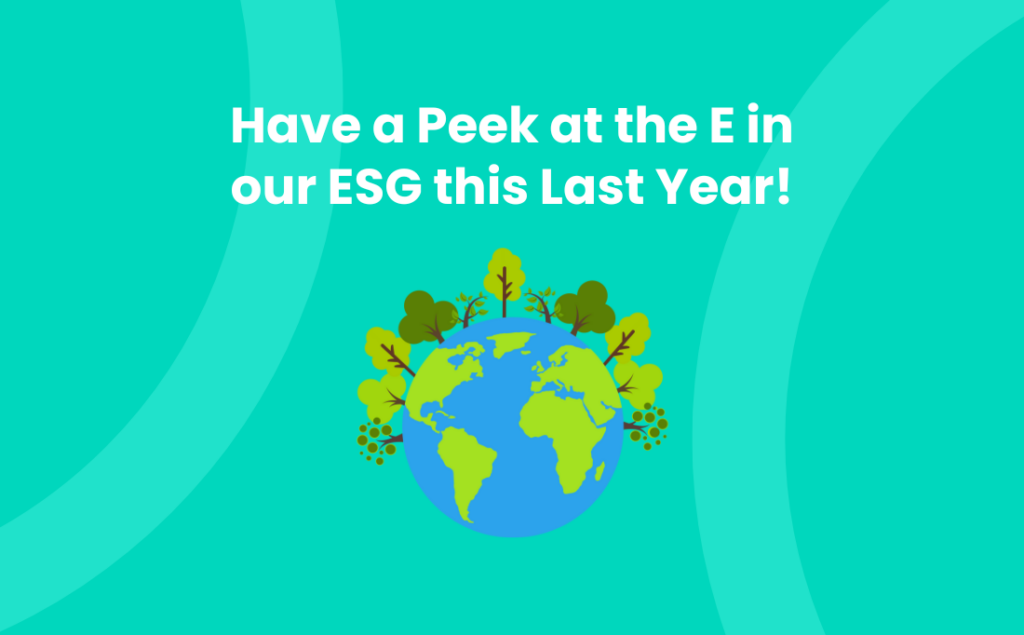In the last financial year, Avrion has continued to support its ESG * policy and ethos through continued work with Ecologi. In this last period, we have planted 1,953 trees in the Ecologi Global Reforestation mix of saplings worldwide.
We have also contributed to various carbon avoidance ** projects – a mixture of:
- Community-based: Repairing boreholes in Eritrea.
- Renewable energy: Solar power project in Morocco.
- Wetland restoration: Peatland restoration and conservation in Indonesia.
- Deforestation prevention: Protection of the Mataven Forest in Eastern Columbia and conserving the Amazon in Brazil.
- Greenhouse gas capture: Avoiding methane emissions from landfill in Brazil.
The graph below demonstrates our continued support with the carbon avoidance we’ve contributed to these six projects alone since we began working with Ecologi four years ago!
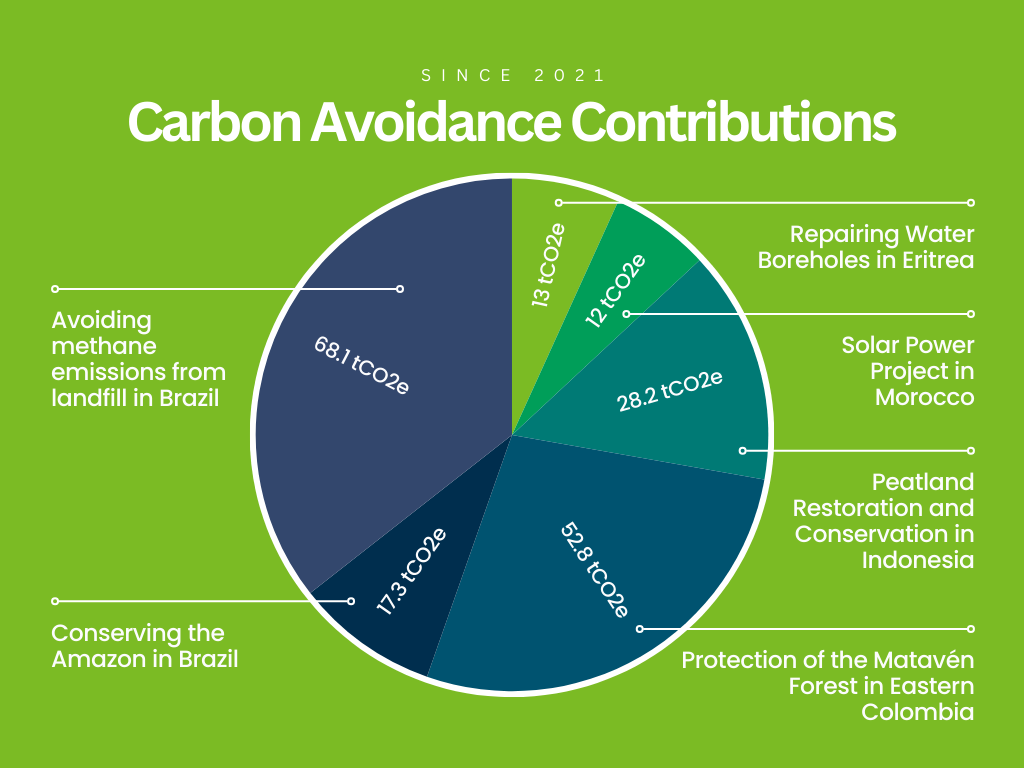
Let’s dig into each of these projects!
Repairing Water Boreholes in Eritrea
This Zoba Debub Community Boreholes project will provide long-term access to safe and clean drinking water to hundreds of households within the Zoba Debub district in Eritrea.
Boreholes are used to access safe, clean water from underground. Holes as deep as 100m are drilled into the ground, and drilling pipes are installed. A hand pump is then fitted, meaning that water can be pumped out by hand.
Many existing boreholes in Eritrea have fallen into disrepair because maintenance programmes have been poorly managed, or proven too expensive, leaving people without access to clean water. This project works to identify broken-down boreholes, renovate them, and supply a maintenance programme to ensure that clean, safe water is delivered.
Zoba Debub is a largely rural district in which many local people typically use wood fuel on inefficient stone fires to purify their drinking, cleaning, and washing water. This process results in the release of greenhouse gas emissions from the combustion of wood. By providing safe water, this project ensures that households consume less firewood during the process of water purification, and therefore reduce greenhouse gas emissions from the combustion process.
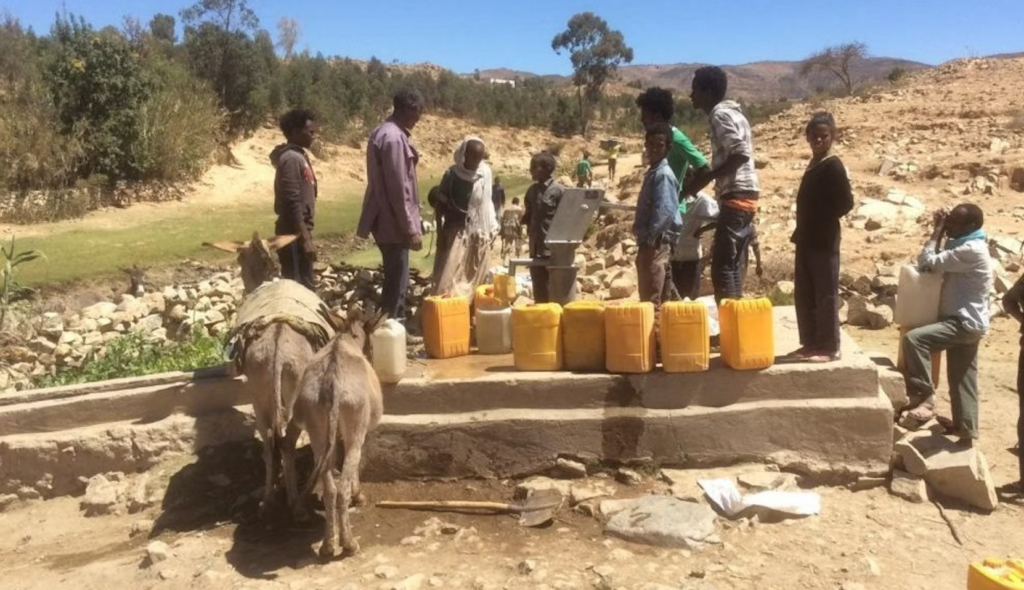
Solar Power Project in Morocco
The biggest share of primary energy consumption in Morocco comes from fossil fuels – with around 57% of the total coming from oil, and 33% of the total coming from coal power. In 2021, solar generation represented less than 2%, though the country has high potential for both solar and wind power generation.
The Ouarzazate solar power station is one of the largest concentrated solar projects in the world, producing 750 GWh of power per year. The project maintains up to 7 hours of solar energy storage which can be used to deliver power even after the sun sets.
The construction of the project provided almost 7,000 local jobs. As well as renewable energy generation, the project design incorporates co-projects which promote the creation of cooperatives, educational schemes, and skills training. It additionally organises a mobile hospital to provide health services to the local community and the purchase of a school minibus which has helped to reduce school drop-out rates.
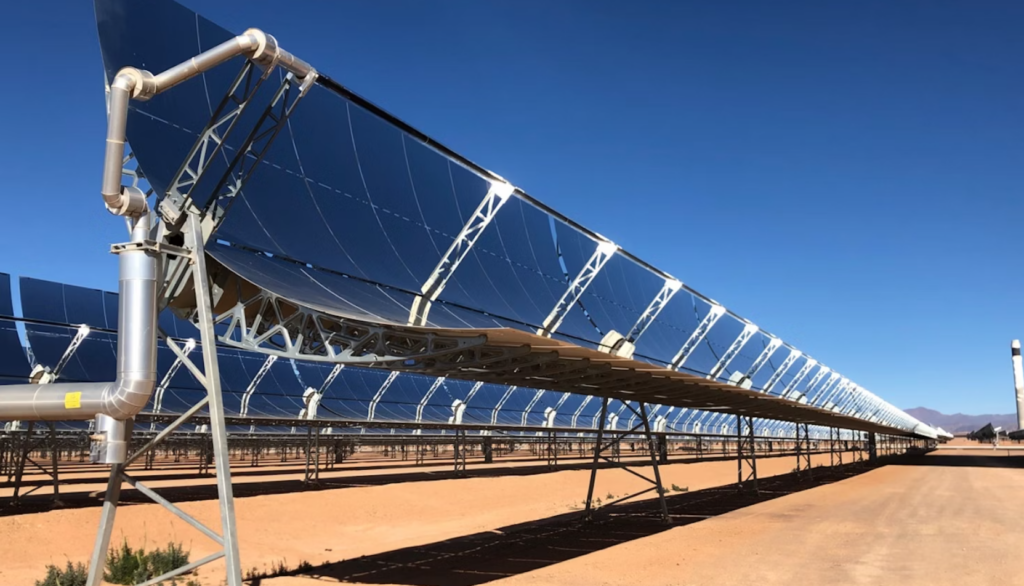
Peatland Restoration and Conservation in Indonesia
Peatlands, particularly in Indonesia, are among the world’s most vital ecosystems, storing vast amounts of carbon. Indonesia houses 36% of the world’s tropical peatlands, yet these ecosystems are rapidly being destroyed for plantation agriculture, including oil palm and acacia.
The Katingan Mentaya Restoration and Conservation Project, located in Indonesian Borneo, is dedicated to protecting and restoring 149,800 hectares of peatland to safeguard both the environment and the local communities. This project aims to prevent deforestation, mitigate climate change, and protect biodiversity while fostering sustainable development for local populations.
The Katingan Mentaya project generates approximately 7.5 million verified carbon units (carbon credits) annually, contributing significantly to climate change mitigation efforts. It also protects and restores a highly biodiverse ecosystem, with the area being home to 44 critically endangered or vulnerable species, including 5-10% of the world’s remaining Bornean orangutans.
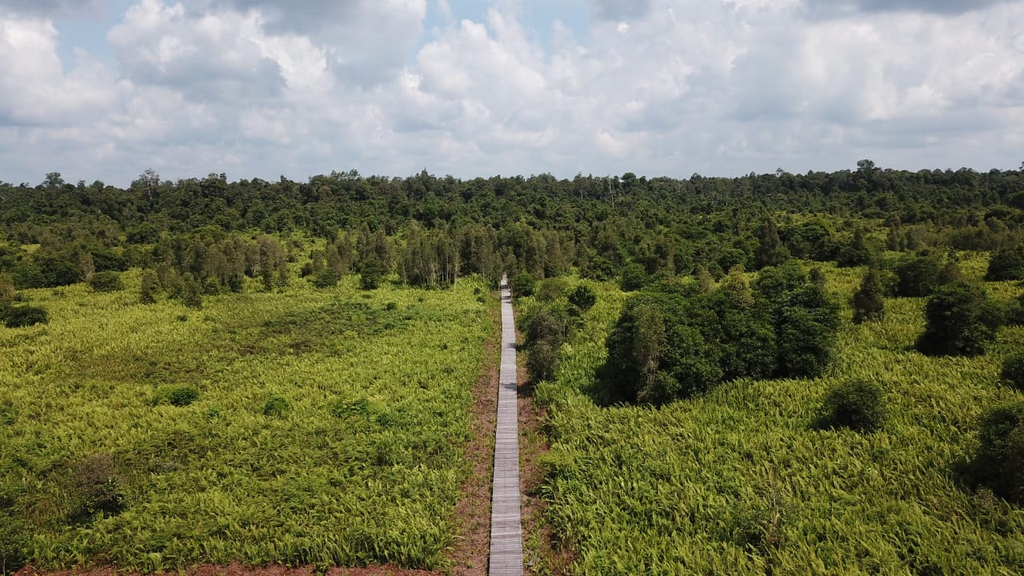
Protection of the Matavén Forest in Eastern Colombia
Colombia, a megadiverse nation, is home to approximately 10% of the world’s flora and fauna, with over 40,000 plant species thriving in its rich ecosystems.
In the Vichada department, located in the Orinoco River basin, deforestation has posed a significant challenge, with around 500,000 hectares of forest lost between 1990 and 2005. The Matavén REDD+ project addresses these environmental and social issues by safeguarding the tropical forest within the Indigenous Reservation of the Matavén Forest.
Before the REDD+ Matavén project, the Indigenous communities of Matavén faced significant challenges. Despite being exceptional guardians of their forests, they lacked access to essential resources like education, healthcare, and markets. With few alternatives, mining, livestock expansion, and illegal activities became some of the only viable income sources, leading to deforestation and threatening their lands, culture, and livelihoods.
By providing alternative livelihoods and employing local rangers, the REDD+ Matavén Project mitigates carbon release that would otherwise result from forest degradation, contributing significantly to climate change mitigation.
This project has achieved:
- Forest protection: 1,150,212 hectares of natural forests safeguarded.
- Biodiversity preservation: Conservation efforts include 249 bird species, 198 butterfly species, and 121 plant species.
- Water resources: Protection of over 800 rivers and streams.
- Indigenous support: Initiatives benefiting 22,486 Indigenous individuals across 350 communities.
- Education enhancement: Improved educational conditions for 9,857 youth and children.
- Cultural preservation: Engagement of 1,233 elders in sharing traditional knowledge and support for six Indigenous ethnic groups.
- Women’s empowerment: Programs empowering 10,864 Indigenous women.
- Security measures: Support provided to 336 Indigenous Guards.
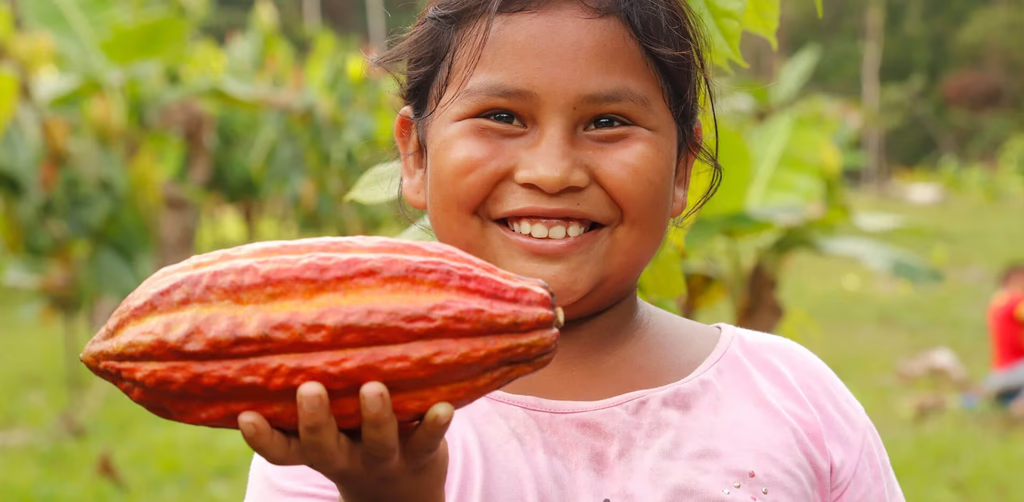
Conserving the Amazon in Brazil
As the largest tropical forest globally, the Brazilian Amazon Forest plays a crucial role as a primary carbon sink, contributing significantly to the fight against climate change. Beyond its environmental impact, it serves as a vital refuge for approximately 10% of the world’s biodiversity and provides sustenance and shelter for numerous traditional communities.
Unfortunately, deforestation, forest degradation, and shifts in land use, particularly in agriculture, have collectively contributed to 23% of all anthropogenic greenhouse gas emissions worldwide between 2007 and 2016.
Established in 2013, the Fazenda Manoa project operates under a 30-year crediting period, with a focus on long-term sustainability.
The project is dedicated to mitigating climate change by:
- Preventing deforestation on the property, preserving vast areas of carbon-rich tropical forest.
- Demonstrating sustainable forest management practices that balance economic viability with conservation.
- Participating in the “Compromisso com o Clima” (Commitment to Climate) platform of Instituto Ekos Brasil since 2018, ensuring broader climate goals.
By standing resilient amidst widespread land conversion for cattle ranching and soybean farming, Fazenda Manoa actively combats emissions and serves as a model for carbon-positive land use.
The project also fosters scientific understanding through:
- Research and monitoring: Collaborations with research institutions to study and protect local ecosystems.
- Biodiversity conservation efforts: Ensuring the health of flora and fauna through sustainable land-use practices.
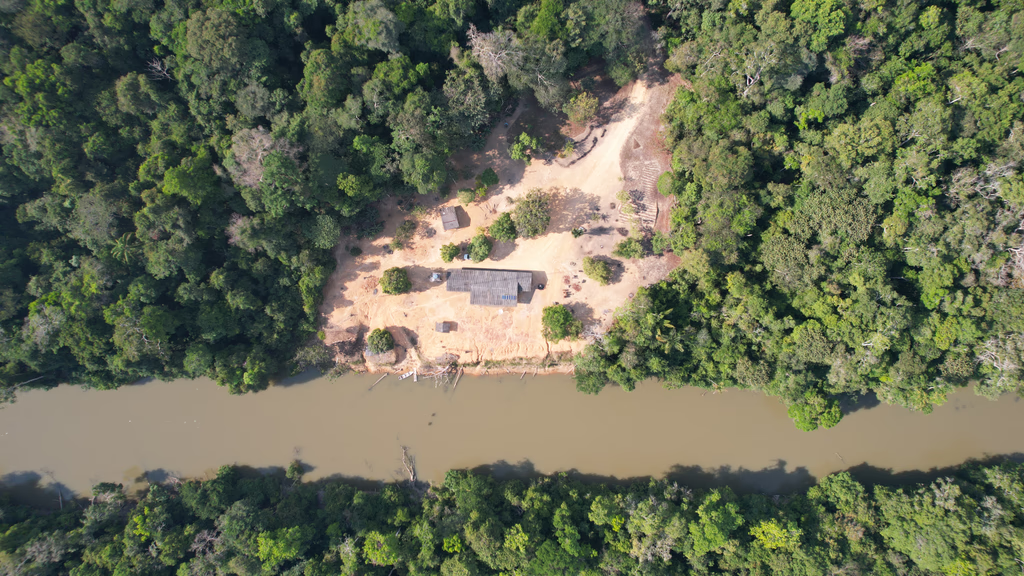
Avoiding methane emissions from landfill in Brazil
As of 2022, Brazil generated approximately 81.8 million tonnes of municipal solid waste, with a collection rate of 93%. This equates to about 1.1 kg of waste per person daily. A significant portion of this waste ends up in landfills, where it decomposes and emits methane.
The Macaúbas project aims to reduce greenhouse gas (GHG) emissions through two main activities: capturing and flaring methane (CH4) from landfill gas (LFG) and generating electricity from this captured methane. The electricity produced will be supplied to the Brazilian national grid, replacing fossil-fuel generated power, thus avoiding CO2 emissions. This initiative contributes to sustainable development at both the regional and national levels.
In its current monitoring phase, the project has achieved emission reductions of 102,580 tCO₂e. Additionally, the clean electricity generated by the landfill gas displaces power from fossil fuel-fired plants, further contributing to Brazil’s climate action goals.
By capturing and utilising methane, the project mitigates environmental harm caused by waste decomposition in landfills. It reduces the impact of landfill operations on surrounding ecosystems and helps protect air quality, while supporting cleaner energy production.
The Macaúbas project also creates new local employment opportunities, including construction, operations, maintenance, monitoring, and security roles. Workers receive specialised training too, enhancing their skills and employability. It helps the local economy by using local manpower during implementation and paying taxes to the municipality, contributing to income generation in the community.
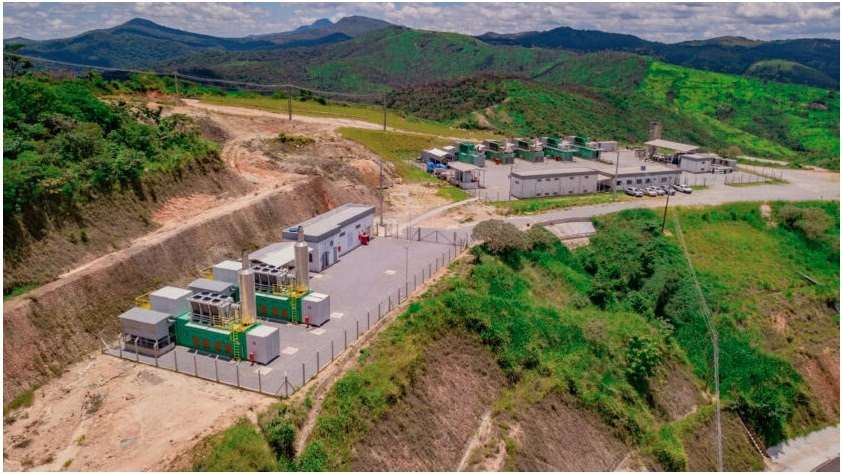
With our contributions to these projects, we have avoided a total of 104.03 certified tonnes CO2e in the last financial year!
Along with our work with Ecologi, to further support ESG, a number of staff now drive fully electric vehicles, and we balance office vs working from home, reducing the amount of travel each staff member has.
Discover what else we do to support our ESG policy as a company!
(** Carbon avoidance projects focus on preventing the release of greenhouse gases that would otherwise occur from human activities. These projects avoid emissions by tackling the sources of carbon dioxide (CO2) and other gases before they are emitted into the atmosphere, helping to limit the overall amount of greenhouse gases contributing to global warming.)
* ESG – Environmental, Social & Governance


